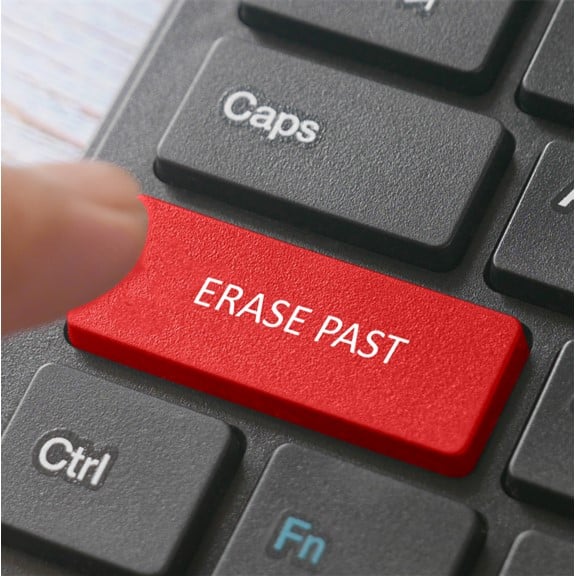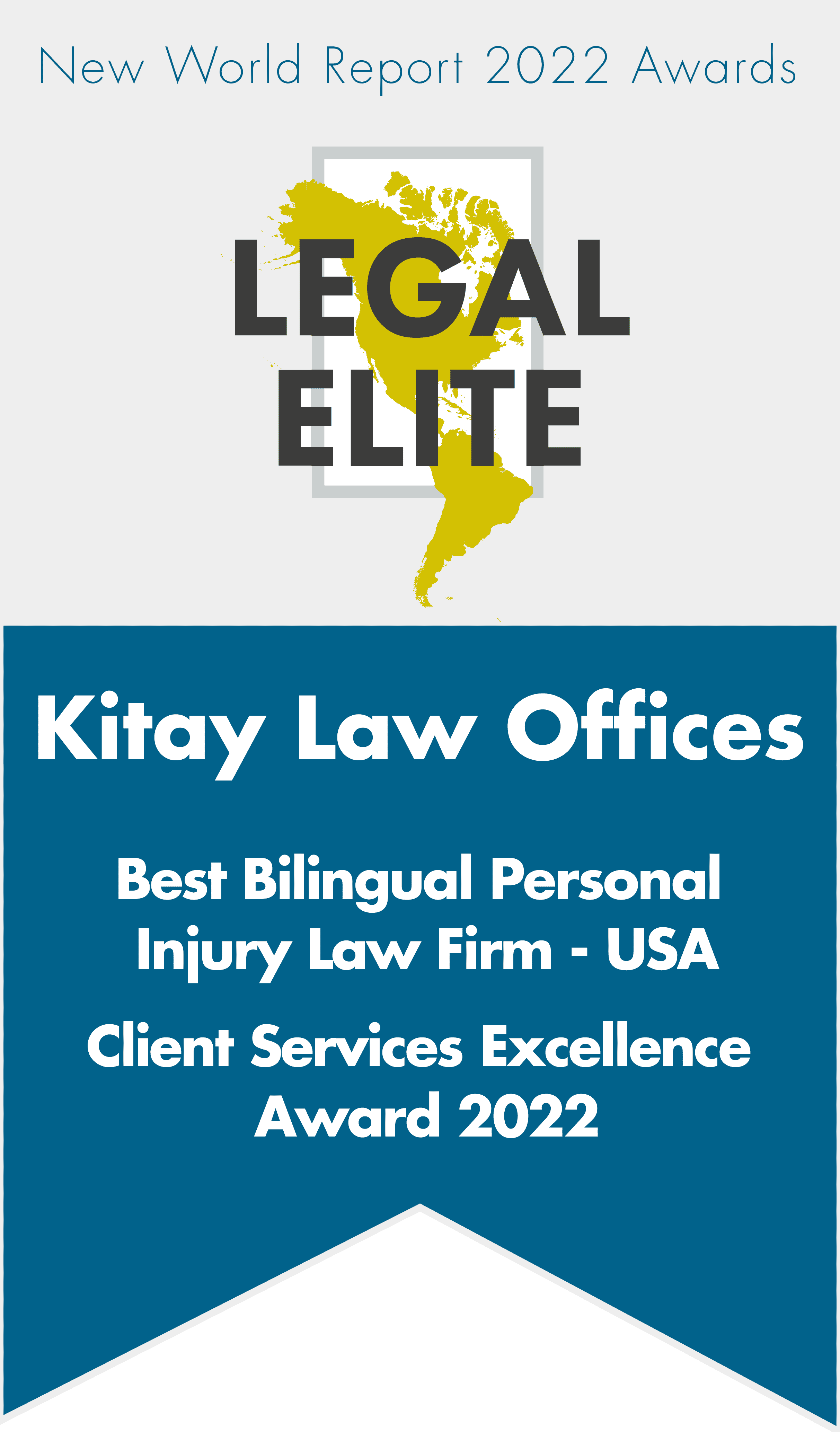An Expungement Lawyer in Pennsylvania Can Help Get Your Life Back
If you’re looking for an expungement lawyer in Pennsylvania, you’ve come to the right place. We can help you expunge your criminal record and get your life back on track.
If you have been convicted of a crime, you may be wondering if there is any way to clear your criminal record. The good news is that in Pennsylvania it is possible to expunge your criminal record. At Kitay Law Offices, a skilled PA expungement lawyer can help you navigate the process every step of the way.
 What is a criminal record?
What is a criminal record?
A criminal record is a document that lists all of your criminal convictions and sentences. If you have been convicted of a crime, your criminal record will include information about the crime, including the date of the conviction and the sentence you received.
Your criminal record will also include information about arrests and charges. Importantly, this means that you can have a criminal record even if you have not been convicted of any crimes.
Further, each jurisdiction keeps its own records. In other words, each county and law enforcement agency has their own list of people who have gone through the criminal justice system. You can even look up your own criminal record in each county using a free tool called the UJS Portal.
Your criminal record will follow you for the rest of your life. It can impact your ability to get a job, find housing, or obtain a loan. In Pennsylvania, you may be able to expunge your criminal record. An experienced PA expungement attorney in Pennsylvania can help you navigate the process.
What is expungement?
Expungement is a way to clear your criminal record by hiding it from public view. If you have been convicted of a crime, expungement can help you erase the conviction from your record.
Once expunged, you will no longer have to list the conviction on job applications or housing applications. In addition, your record will typically no longer show up on background checks if requested by potential employers, educational institutions, or others.
However, the courts and law enforcement will still have access to your criminal record. Therefore, if you are arrested for a new charge the judge and district attorney will be able to see that you’ve been in trouble before. This can impact any deal-making or sentencing decisions in a future criminal case.
Who qualifies for expungement?
Unfortunately, not everybody qualifies for expungement. While you should consult with an expungement lawyer in Pennsylvania to be sure, Pennsylvania law is quite clear who qualifies.
Three broad categories for expungement
Generally, those who qualify for expungement fall into one of three broad categories: non-convictions, convictions for a summary offense, and certain juvenile convictions. Ensure you discuss each of these categories with an experienced PA expungement lawyer.
Non-convictions eligible for expungement in Pennsylvania
As the name suggests, situations where you have been accused or charged, but not convicted, can often be expunged. This could have occurred where charges were not proven in court. For example, the case against you may have been dismissed or withdrawn, nolle prossed (where the district attorney decides to drop the case before trial), or you may have been found not guilty.
In addition, if you completed Accelerated Rehabilitative Disposition (ARD) for a criminal charge in Pennsylvania, you may be eligible for expungement. Importantly, however, this does not apply unless you successfully complete all requirements of your ARD program.
Further, you may be eligible for expungement if you have a case that has been open for 18 months or longer and there has been no disposition. To be successful, the court will also have to verify that you have no other criminal actions pending.
Summary offense conviction
Your Summary offense may be eligible for expungement. Importantly, at least 5 years must pass after your original sentencing on the charge. If you apply for expungement too early, you will be denied.
Certain juvenile convictions
Here, the circumstances where expungement applies are narrow. Specifically, this includes where you have a juvenile conviction for the Summary offense of Underage Consumption (underage drinking).
Other situations where a PA Expungement Lawyer can help
In addition to the situations we have discussed, you may qualify for expungement under other circumstances. For example, you may have a 2nd or 3rd degree misdemeanor conviction on your criminal record. But, if you have been arrest-free for at least 10 years following the conviction, you may be eligible for expungement.
Interestingly, you may also qualify for expungement if you are over 70 years old and have been free of arrest or prosecution for at least 10 years. An added requirement, however, is that the 10-year period must also be after you complete any jail, prison, or other supervisory requirements from any prior convictions.
Finally, you may be eligible for expungement if your prior conviction was pardoned by the governor or if the person applying for expungement (their estate on their behalf) has been deceased for at least 3 years.
What can an Expungement Lawyer in Pennsylvania help with?
Similar to qualifying for expungement, there are certain types of records that can and cannot be expunged. Here are some examples of criminal records that can be expunged:
- Convictions for Summary offenses that carry penalties of no more than 90 days in jail
- Arrest records if there has been no disposition within 18 months
- Cases resolved through the ARD program, with a few exceptions
- Convictions for underage purchase, consumption, or possession of alcohol by a person over 18 years old, but younger than 21 years old
As you can see, a variety of records can be expunged and this is not an exhaustive list. Ensure you discuss the specific details of your case with a skilled expungement lawyer in Pennsylvania to get the best outcome possible.
What cannot be expunged?
While several types of criminal records can be expunged, some cannot. Examples of records that cannot be expunged include the following:
- Most felony convictions
- Convictions by repeat offenders
- Misdemeanor convictions if you have failed to complete all sentencing requirements
- Sex offenses that require you to register as a sex offender
- Convictions related to cruelty to animals
- Intimidation or retaliation against a witness
- Impersonating a public official
- Offenses that carry a maximum sentence of more than 2 years in prison
- Repeat offenders of charges that carry a maximum sentence greater than 1 year in jail
To clarify whether your situation can be expunged, speak with an experienced PA expungement attorney at Kitay Law Offices today. We’ll review the facts of your case and discuss a plan of action.
Can a Pennsylvania Expungement Attorney explain the expungement process?
The expungement process in Pennsylvania includes several steps. Further, some cases will have a quick expungement while the district attorney may contest others. Here is a general outline of the expungement process in Pennsylvania:
- Obtain an official copy of your criminal history record. You can obtain it from the Pennsylvania Access to Criminal History (PATCH) website.
- File the appropriate petition with the court where the conviction is located. The petition will vary depending on whether your conviction is for a Summary offense or a more serious offense. Further, you must also forward this petition to an attorney for the Commonwealth of Pennsylvania.
- Within about 60 days, the Commonwealth must respond to your petition by either agreeing, contesting, or staying silent.
- Once a response comes in from the Commonwealth (or the time passes with no response), the judge will either approve or deny the petition. In some circumstances, however, the judge will schedule a hearing to learn more before making a final decision.
- If your expungement is approved, the judge will enter an Order directing that the record be expunged. If your petition is denied, you have 30 days to file an appeal.
As you can see, the expungement process involves several steps. Further, it is common for judges to seek additional information, evidence, and clarification by scheduling hearings. Therefore, it is best to have a PA expungement lawyer on your side throughout the process.
What is the difference between an expungement and a pardon?
Expungement and a pardon are two different ways of clearing your criminal record. Expungement is a process that clears your criminal record so that it is not accessible by the public. A pardon, on the other hand, is an act of forgiveness from the governor.
Since a pardon does not actually remove the conviction from your criminal record, you may want to petition for expungement after your pardon is complete. There are multiple steps to this process, so ensure you consult an experienced PA expungement attorney for help.
Do I have other options to hide my criminal record if I can’t get it expunged?
Fortunately, you may have additional options to hide your criminal record even if you do not qualify for an expungement. Pennsylvania maintains two different programs that can help fill in the gaps for many people with a criminal record. These programs, Clean Slate and Act 5 Limited Access, can limit who may be able to see your criminal record.
Pennsylvania Clean Slate
Pennsylvania’s Clean Slate program is a relatively new law which went into effect as of June 28, 2019. Clean Slate allows certain people with criminal convictions to have their records shielded from public view.
The program applies to Summary and non-conviction records after you have been clean of conviction for offenses that carry a 1-year or longer maximum sentence and 10 years have passed since the time you completed all obligations for the prior conviction. In that circumstance, Clean Slate will automatically apply to shield your record from the public.
Importantly, this does not mean your criminal record is expunged. The courts and law enforcement will still have access to your record.
The following situations are eligible for Clean Slate:
- Charges that did not result in convictions
- You only have Summary convictions
- 2nd and 3rd degree misdemeanor convictions
- Other misdemeanors punishable by 2 years or less in prison
On the other hand, those convicted of certain offenses are absolutely ineligible for Clean Slate. A few examples include felonies, indecent exposure, failure to register as a sex offender, and firearm offenses.
To learn whether your situation qualifies, speak with a PA expungement attorney.
Pennsylvania Act 5 Limited Access
Pennsylvania Act 5 Limited Access went into effect as of December 26, 2018, so it is also relatively new. It is similar to Clean Slate, but different in the sense that Clean Slate occurs automatically while Limited Access does not. Instead, you will have to petition the court to hide your record from public view.
Similar to Clean Slate, you will need to remain free of arrest for any offenses with a maximum sentence of 1 year or longer in prison for a period of 10 years before becoming eligible. Limited Access also covers many of the same offenses that fall under the Clean Slate program, with some important differences.
Under Limited Access, those with convictions for ungraded offenses punishable by 5 years or less in prison are eligible. Further, some offenses that are not eligible for Clean Slate but are eligible under Act 5 Limited Access include:
- Harassment
- Corruption of minors, so long as it’s a Summary offense
- Reckless endangerment
- Criminal coercion
Other offenses qualify, as well, so ensure you discuss your options with an experienced expungement lawyer in Pennsylvania. You will learn your options and develop a plan to shield your criminal record from public view.
Contact an Expungement Lawyer in Pennsylvania at Kitay Law Offices today
If you have a criminal record that you would like expunged, it is important to speak with an expungement lawyer in Pennsylvania. At Kitay Law Offices, we can help guide you through the expungement process and represent your case in court.
We have extensive experience with the Pennsylvania expungement process and we would be happy to help. Contact us today for a free consultation.
 What is a criminal record?
What is a criminal record?
